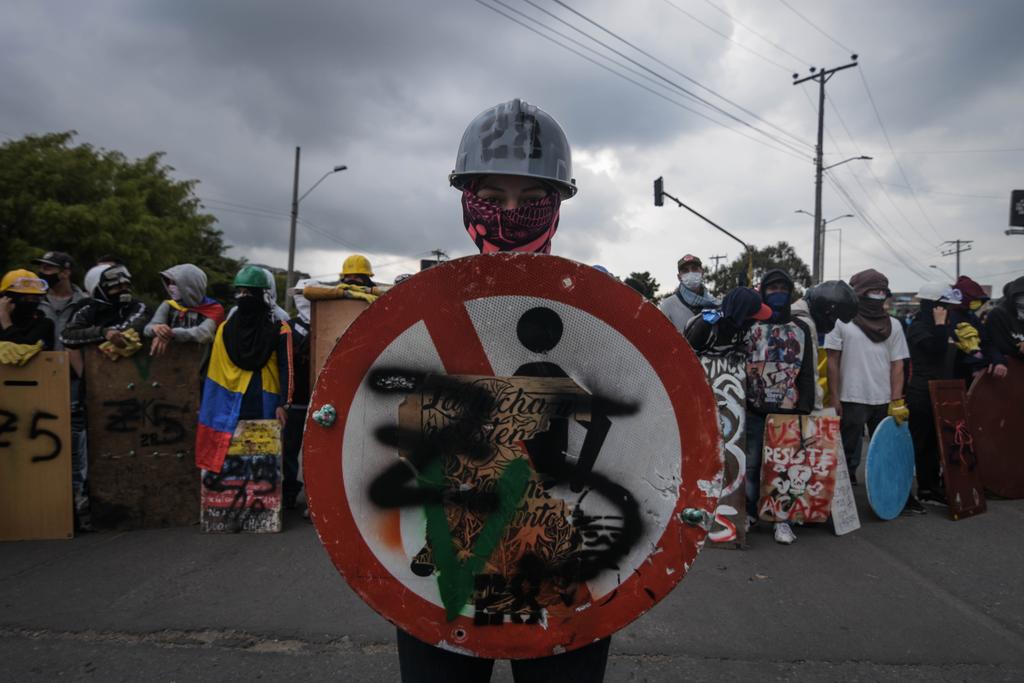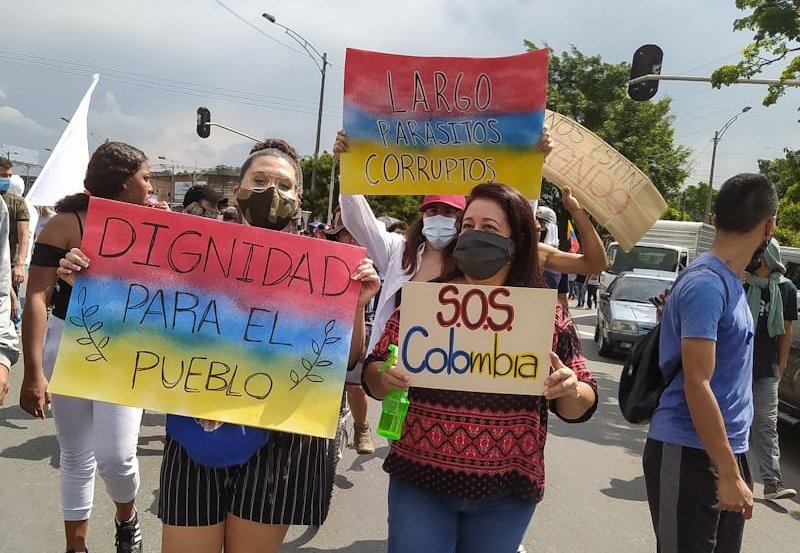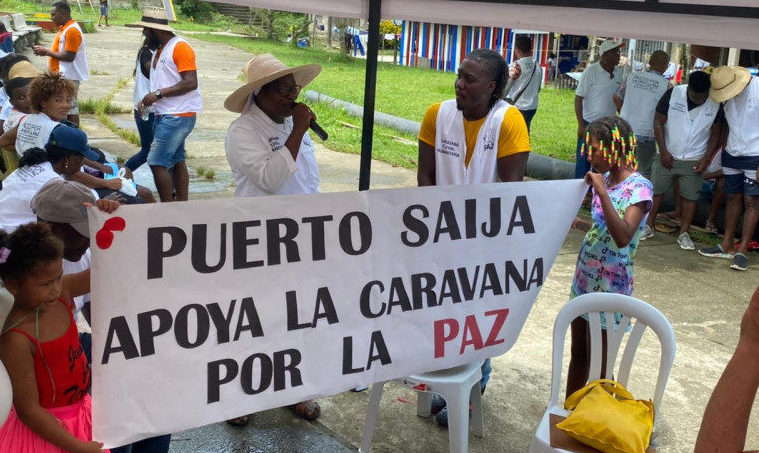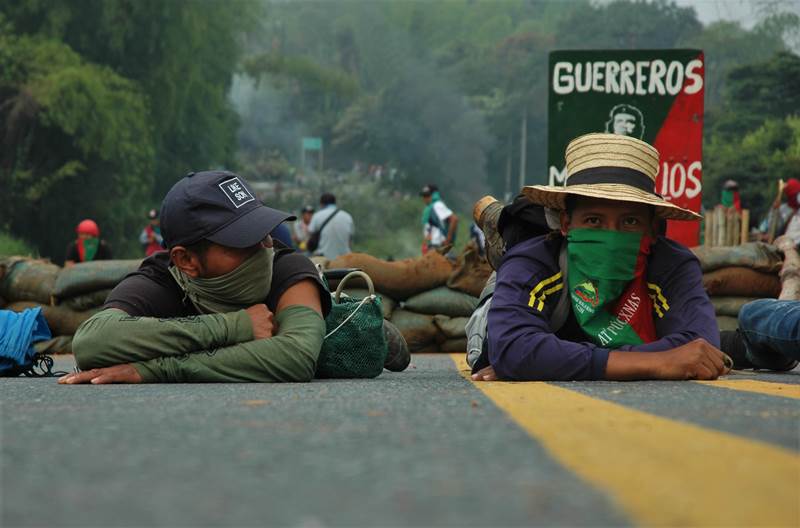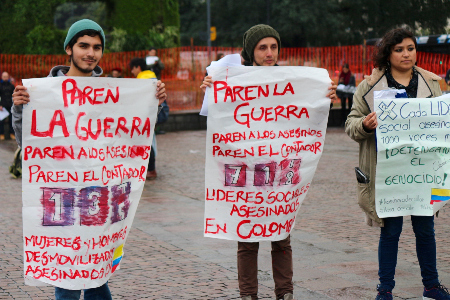
Protest closing of ICC Colombia investigation
A coalition of Colombian human rights groups and survivors’ organizations released a statement decrying as “shocking” the decision by the International Criminal Court (ICC) to close its preliminary examination of possible war crimes carried out in the country. The statement, jointly issued by the International Federation for Human Rights (FIDH) and the José Alvear Restrepo Lawyers’ Collective (CAJAR), said that closure of the examination “could mean that hundreds or thousands of victims of crimes under the jurisdiction of the ICC will be deprived of knowing the truth and obtaining justice concerning the crimes committed. In Colombia…there is still a systematic absence of investigation of those responsible at the highest levels for crimes under the jurisdiction of the ICC.” (Photo: Prensa Rural)



